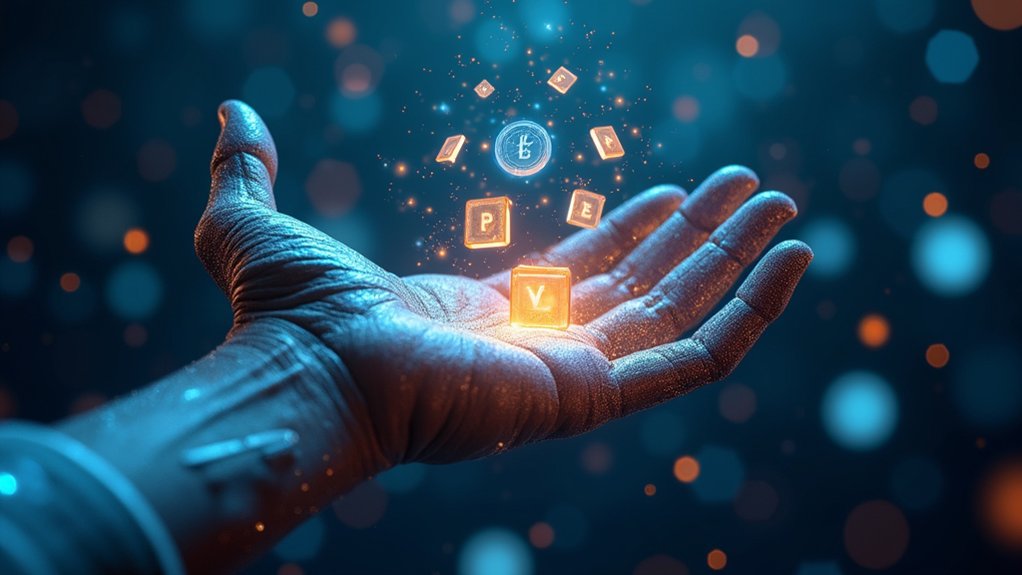While the crypto industry has weathered more existential crises than a philosophy major’s thesis defense, artificial intelligence now emerges as the unlikely savior promising to transform digital finance infrastructure by 2025. The fusion of AI with blockchain technology creates an ecosystem where machine learning algorithms don’t just analyze market trends—they actively reshape the fundamental architecture of digital finance.
Transaction speeds accelerate while costs plummet as AI algorithms optimize blockchain operations with surgical precision. The technology’s fraud detection capabilities identify suspicious patterns faster than regulators can pronounce “cryptocurrency,” enhancing security through real-time anomaly detection.
AI-powered blockchain optimization delivers lightning-fast transactions and ironclad security that outpaces even the most ambitious regulatory pronunciation attempts.
Meanwhile, autonomous intelligent contracts execute complex operations without human intervention, because apparently we’ve reached the point where computers trust each other more than we trust ourselves.
The emergence of decentralized AI marketplaces represents perhaps the most intriguing development, allowing secure sharing and monetization of AI models and data. These platforms aggregate underutilized GPU hardware at markedly reduced costs, creating what amounts to a distributed supercomputer powered by blockchain incentives.
Recent U.S. regulatory clarity has legitimized this decentralized infrastructure, encouraging enterprise adoption with the kind of enthusiasm typically reserved for tax write-offs. Regulatory certainty now fuels business growth and innovation by eliminating the ambiguity that previously hampered blockchain adoption.
Predictive analytics now inform crypto trading strategies with unprecedented sophistication, as machine learning models adapt their accuracy based on emerging data patterns. Smart contracts evolve beyond simple if-then statements, incorporating AI to make dynamic adjustments based on real-time market conditions.
This automation reduces operational overhead while handling compliance requirements automatically—a development that should terrify traditional financial intermediaries. The potential economic impact could reach $20 trillion globally by 2030, fundamentally reshaping how we understand digital value creation.
The combination enhances transparency and resilience of financial systems through AI-powered threat detection and blockchain’s immutable records. Autonomous agents execute tasks ranging from data analysis to complex transactions, creating workflows that operate with minimal human oversight.
Market volatility warnings emerge from AI analysis of vast datasets, providing early signals that help investors navigate the crypto landscape’s notorious unpredictability. Traditional centralized platforms face increasing competition from these AI-enhanced systems that offer superior automation and reduced operational risks.
This convergence of AI and blockchain technology fundamentally alters digital finance infrastructure, creating decentralized applications that foster innovation across the sector. The question isn’t whether AI will transform crypto infrastructure—it’s whether traditional financial systems can adapt quickly enough to remain relevant.





